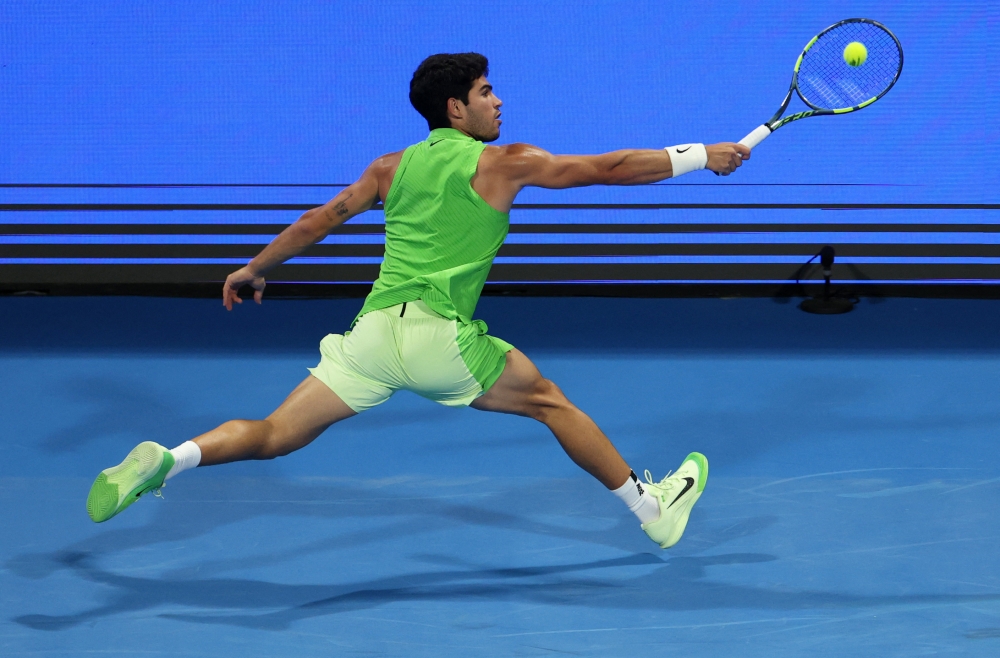As leaders pull out of the G20, who can capitalise on the opportunity?
The upcoming G20 meeting in Johannesburg will be without the US government, and only a lower-level rep from Russia, but with the second-highest Chinese leader, although not Xi Jinping. While the middle powers at the meeting may hope they will share the collective heft and will to guide the proceedings, the meeting will represent a win for China.

The United States is effectively boycotting this year’s G20 (along with Argentine President Javier Milei’s announced boycott in support of Donald Trump). This is based on the American president being in a snit over the South African government’s alleged domestic policies, as well as Trump’s objections to the official objectives of this year’s meeting.
Russia’s representative will be a relatively junior official, the Deputy Chief of Staff of the Presidential Executive Office, Maxim Oreshkin. China’s president, Xi Jinping, will be absent as well, but his second-in-command, Li Qiang, will be in attendance. Mexico’s new president, Claudia Scheinbaum, will also stay away.
Will the effective absence of two major players mean the G20’s relevance will be substantially lessened? Or, as some have argued, will this open a path for a “rise of the middle powers” at an international gathering like the G20?
Or, is there a third alternative outcome we can consider? That is, whether these absences will create a clear avenue for China to be the most important presence at the meeting and thus shape the meeting’s outcomes amenable to its own foreign and economic policy interests? These alternatives call for a deeper look.
But first, briefly consider some history of global meetings. Over the post-war era, a consistent trend has been for nations outside the tent to insist on being let into the global conversation, the meetings, and, ultimately, the organisations themselves. This has been a universal trend.
Thinking about the upcoming G20 conference, it is now possible to argue that gatherings like the G20 may have reached their apogee – and they can and should be scaled back. In the future, the increasing use of electronic connectivity instead of face-to-face meetings may actually accelerate.
Let us circle back to the three potential alternative outcomes for this conference.
Diminished relevance
In the first case, America and Russia’s failure to participate meaningfully means their interests will get less of a hearing. Their views will be less well represented in a final communique or plan of action from this G20. This will be interpreted as their being less interested in addressing global challenges, a tangible recognition that they are less engaged in issues beyond their borders, even as those challenges transcend boundaries.
The bottom line? For a major nation, non-participation in an event like the G20 contributes to a lessening of its international prestige and impact in the eyes of friends, even as it encourages antagonists to feel more confident in opposing the non-participating nation, contributing to a negative cycle of respect. Worse, it feeds an image of a declining nation, looking away from global concerns.
The American boycott of the upcoming G20, in the words of a group of Afrikaner intellectuals and academics who sent an open letter to the Senate Foreign Relations Committee, is “a symptom of the same isolationist and divisive politics that fuel misinformation about South Africa”. Further, this boycott, coupled with a new American regimen of refugee status largely limited to white South Africans, “positions the United States outside of the global consensus on human rights, diversity, and democratic cooperation.”
Opportunity for middle powers
And that second alternative? Will the lack of a US presence – and a low-level Russian engagement – open a space for middle powers to assert themselves more effectively in this G20?
The challenge comes in defining such a grouping and its unifying interests. However, there may be limited policy specifics uniting India and Spain, or Saudi Arabia and South Korea, or South Korea and Japan, for example. Finding consensus among a dozen or so nations with divergent views sufficient to advance a common agenda will be challenging.
Some of these nations have long-standing mutual antagonisms and difficult political conversations, such as Japan and Korea, or growing economic rivalries. Some subgroups, such as the European G20 members, have rather different agendas than the “South” nations in the G20 on climate issues like fossil fuels.
If finding consensus in prior G20 gatherings was difficult, finding agreement among a still smaller group of nations and somehow imposing it upon the larger powers will be a challenge.
In response to these questions, perhaps this meeting will adjourn with only a pro forma announcement that participants had “good and frank” discussions on matters of mutual concern. The attendees also noted useful suggestions made by attendees and others beyond the actual meeting. Such a statement practically writes itself.
Win for China
And so, what of that third alternative, a pre-emptive declaration of a “win” for China at this G20?
Despite being represented by its premier rather than president, China’s representatives will come prepared to engage energetically to demonstrate its central place as a global leader. They will present a polished retelling of China’s historical vision of relations with other nations as one of spokes and a hub – with China increasingly as a hub.
Beyond the wording of any communiques and reports, the Chinese will undoubtedly be prepared to announce side agreements on aid, trade and development. There will be handshakes and photos noting those mutual understandings for future discussions.
The premier will underscore China’s support for non-intervention in the internal affairs of other sovereign nations, in parallel with the need for deeper South-South relationships for a more egalitarian, more responsible stewardship of the global economy, despite efforts by others to baulk at such efforts. And they will wear really good suits.
Capturing the concerns of some observers about a growing Chinese ascendancy, a recent Washington Post commentary noted:
“…The United States under Trump has been brandishing the tariff stick against allies, then demanding more market access and direct investment as a price for relief. Meanwhile, Xi has been presenting China as a reliable economic partner committed to multilateralism, predictability and open trade.
“China is, in fact, already becoming the [Asia-Pacific] region’s dominant power in trade and manufacturing while making strides in the cultural space. China’s trade with Southeast Asia, at $982 billion, is nearly double the region’s trade with the U.S. China is also the largest trading partner for America’s close allies Japan and South Korea….
“…China is now viewed more positively than the U.S. in many Asian countries, including Singapore, Malaysia and Thailand, and it’s seen by most Asians as the region’s dominant economic player.”
Other observers point to parallel Chinese diplomatic and economic efforts in the South Pacific, in Africa and Latin America. With its chief global rival, the US, AWOL from the G20, and Russia’s leaders preoccupied with its grinding war in Ukraine and the economic costs of it, by contrast, the Chinese presence will be a compelling one.
Perhaps the best outcome that can be expected is for those middle powers to insist on a consideration of their wide roster of interests – from climate change and the use of fossil fuels, improving the terms of foreign investment, a drawing down the growing trade protectionism, new approaches to debt relief, greater concerns over refugee issues, among others – at the two-day meeting. They can push hard to ensure those concerns are reflected in the final G20 documents.
But we cannot expect this meeting will remake the world the way the Dumbarton Oaks meeting did in establishing the three fundamental global financial institutions – the World Bank, the IMF, and GATT (now World Trade Organisation) – at the close of World War 2.
[Source: Daily Maverick]
























































